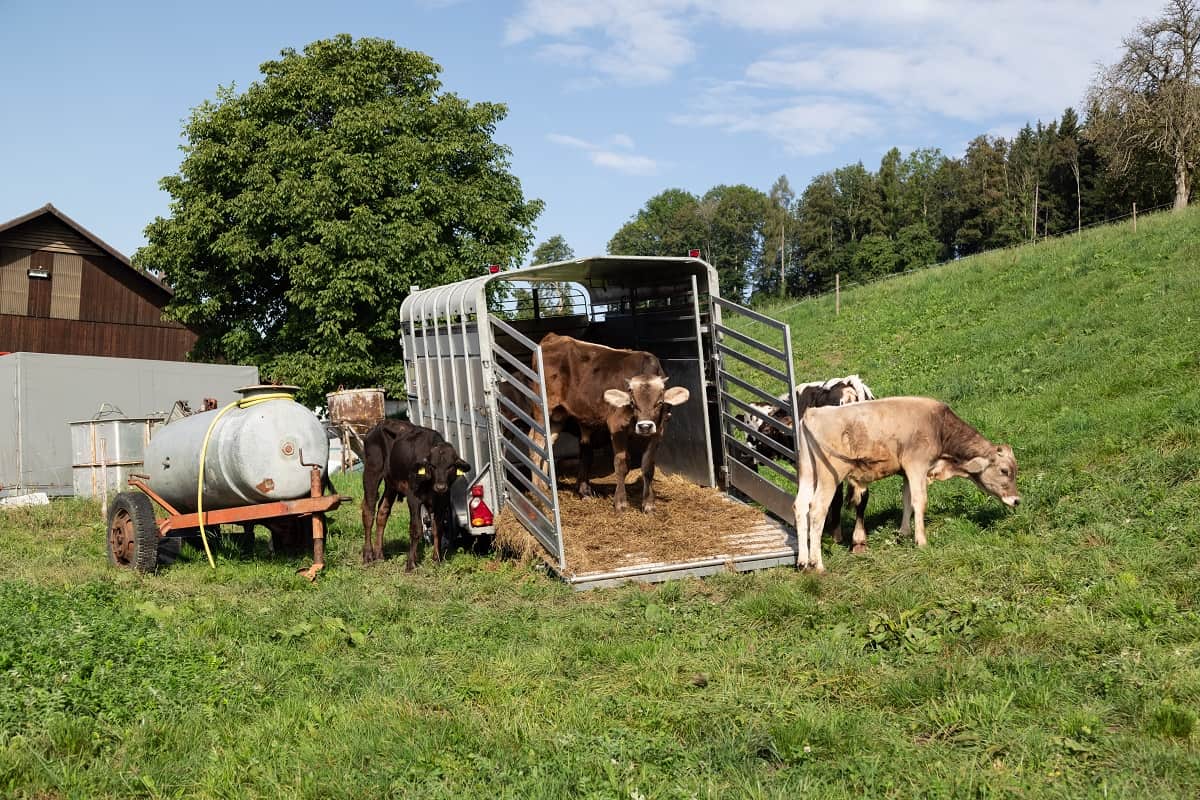Depending on your goals as a farm or homestead, you may at one point find it necessary to rehome your livestock.
Perhaps your animals are no longer productive. Maybe you need to move and can’t bring your animals with you, or perhaps local regulations no longer allow you to have certain kinds of animals (like roosters). Perhaps you just need to downsize and culling is not the answer.
Whatever the case may be, rehoming is rarely an enjoyable process. Fortunately, these tips will make it easier for you to know when (and how) to rehome your livestock. I’ll also give you some advice on how to make it as safe and comfortable for your animals as possible.
When is Rehoming Livestock Necessary?
Of course, I would never advocate for rehoming as a solution to a vast majority of farm “woes.” Do your research before purchasing or breeding any kind of livestock so you have an idea of what you’re getting yourself into.
Since the COVID-19 pandemic encouraged an onslaught of panic-buying baby chicks, I’ve seen countless hens and (especially) roosters up for sale. Whether people grew sick of having chickens or just didn’t realize the amount of work involved, I’m not sure – but what I do know is that it is irresponsible to buy animals without being prepared for the cost.
Be Aware of the Cost of Livestock
We’re not just talking about the financial cost, though raising chickens and other kinds of livestock can be expensive if you don’t know the best ways to save money.
There’s also the physical and emotional cost of doing so. Raising any kind of animal can be tough work, often requiring lots of logistical know-how and tenacity when it comes to the kind of infrastructure and care required.
To avoid rehoming, do your research and make sure you are prepared to care for the animals you buy or bring home. You also need to look into local regulations. I can’t tell you how many times I’ve heard someone say they brought home a flock of 24 chicks only to find out that where they live only 6 are allowed – and only hens, to boot.
It doesn’t take much effort to do a quick Google search – make sure you are prepared.
However, sometimes situations and circumstances change. Perhaps you injured yourself or are ill and can no longer care for your animals. Perhaps, through natural breeding, your flock or herd size has grown too large and you need to reduce it without having to kill off animals.
Maybe your animals have begun fighting with each other and you need to remove a few of the antagonists.
Whatever the case may be, make sure rehoming is necessary before you do it.
What Exactly is Rehoming Livestock?
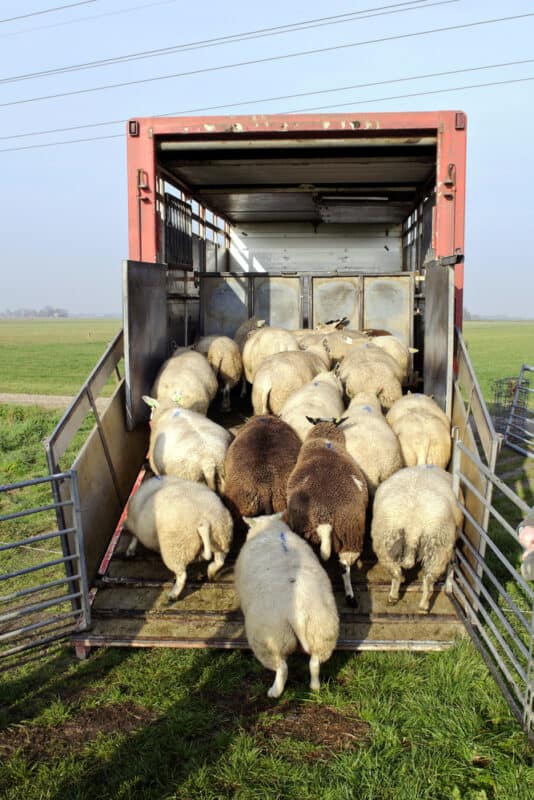
Rehoming is, at its core, a pretty simple concept. It is finding a new home for your animals that is not your own. This might be at another farm, at a sanctuary, or in a similar kind of environment, though there are fewer “shelters” for unwanted livestock animals than there are for pet animals, like cats and dogs.
Rehoming can be challenging in that it forces you to acknowledge the fact that there are better owners out there for your animals. However, it shouldn’t be an option you shy away from. Sometimes you might not be capable of providing the best possible care and rehoming is a reasonable alternative to the other method of getting rid of farm animals – culling.
Tips for Rehoming Livestock
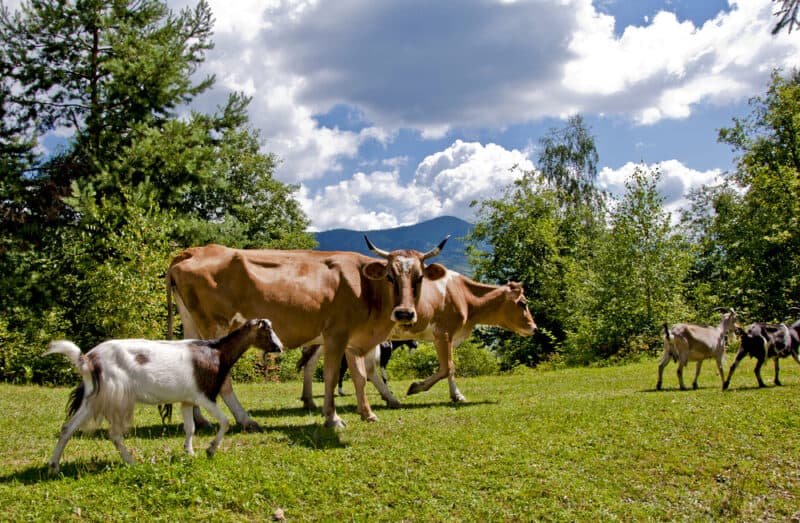
If you’re thinking about finding new homes for your animals, consider these tips.
1. Make Sure This is the Best Option For You
There are alternatives to rehoming livestock that you may want to consider before this path.
For example, if you are simply trying to downsize (say for example you have a flock of sheep that is too large or a herd of cattle that needs to be reduced), you might have to turn to culling instead.
Culling sounds inhumane, but when it comes to animals that are injured, old, or unproductive, it can actually be the more humane choice rather than prolonging their lives.
2. Decide Whether You Want to Sell or Give Away Your Animals
After deciding that finding your animals a new home is the best option, you next need to figure out whether you want to charge for this service.
This decision might be influenced by where you live and what kind of animal you are trying to get rid of. If, for example, you’re trying to rehome a rooster in the suburbs, you’re going to have a much harder time getting money for him than you might just by giving him away.
However, if you have a young laying hen in her prime and live in a rural area, you can probably charge a bit of money. Be realistic in your expectations as you go about making this decision.
3. Know That Some Animals Are Easier to Rehome Than Others
As an extension of the above tip, know that some animals will be much easier to rehome than others.
Much of this comes down to species – very few people are equipped to raise a herd of cattle looking for a home but probably just about anyone could take on a few rabbits. The price and age of your animals will also come into play.
Don’t forget the fact that younger animals will be much easier to move, as will those with amicable dispositions. If you’re trying to get rid of ornery individuals, you may have a more difficult time (especially if you are being honest – something I strongly encourage and will discuss in more detail below).
Finally, consider whether you want your animals to all go to the same new home. If you’re selling a ewe-lamb pair, for example, this might be crucial – very few people will want to spend the energy and money involved in bottle-feeding a young lamb. However, selling large groups might be more challenging.
4. Give a Thorough, Honest History of Your Animals
It might be tempting for you to gloss over the less-than-savory details of your animals when you’re trying to rehome them.
History of internal parasites? Ill-mannered around children? Tends to bully other chickens? Don’t just skim over these details. It’s not only unethical not to let a new owner know what they’re getting into, but it might come back to bite you, too.
If you can, take some time before you decide to sell or rehome your animals to write down any details you think the new owners might need to know. This might include a medical history as well as a breeding history and genetic lineage. You should also include information on things like vaccinations, past owners, and behaviors.
5. Visit the New Home
Take the time to visit the new home for your animals, even if that just means driving by the site. In doing this, you will get a good feel for whether this is the most ethical and safest place for your animals to go. Be sure to talk with the new owners at length, too. This will give you a better idea of whether they are the right people to care for your adoptee animals.
6. Make Sure your Animals are in Tip-Top Shape
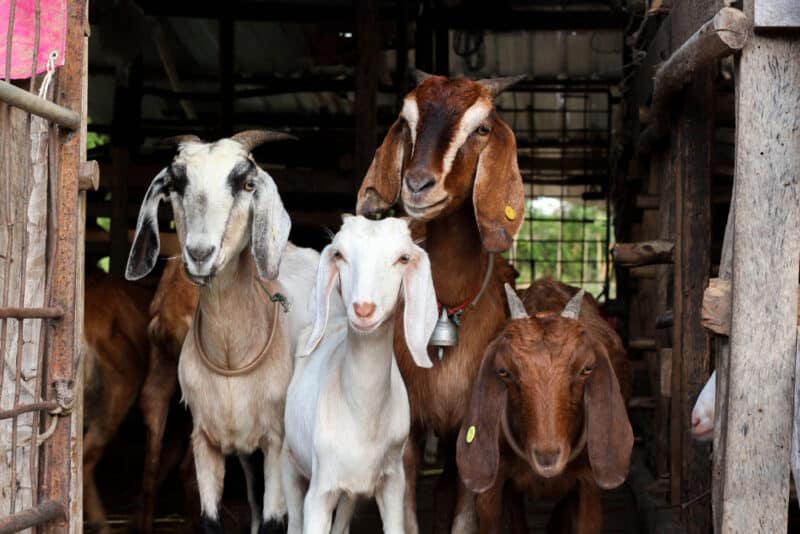
Before sending your animals to their new home, take the time to get them into fighting shape. Make sure they are up to date on vaccinations and medications. Do any grooming that’s necessary, like bathing or trimming hooves. Don’t pass off your problems to the new owners!
7. Research All the Options for Rehoming
Be sure you research all potential avenues for rehoming your animals. You can list them on websites like Craigslist or reach out to people you know on Facebook (Facebook Marketplace, unfortunately, prohibits any advertisements related to animal sales or transfers).
You can put flyers up at your local feed store, chat with local farmers, or make some cold calls to local shelters, veterinarian offices, and cooperative extensions.
When you post advertisements or respond to inquiries about your animals, be clear about your expectations. For example, if you want your flock of pet chickens to go somewhere they will be raised strictly as pets or for eggs (and not sent straight to the stockpot), you need to specify this.
Sadly, you can’t always control what happens after your animals leave your care, but you can at least indicate this preference when you list, sell or give away your animals.
Be Honest When Rehoming Livestock!
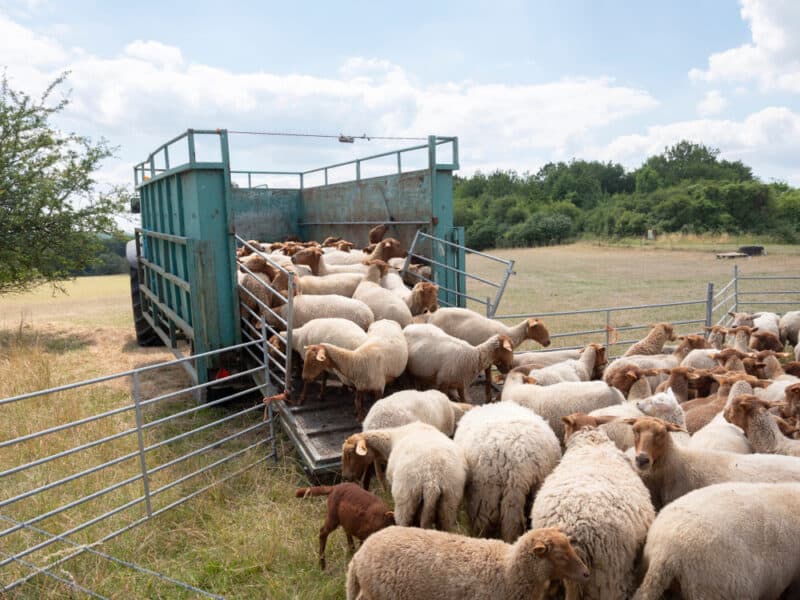
Finding new homes for your livestock is never an easy thing to do. However, if you’re lucky enough to find new owners that will love and care for your animals just as you do, you must be honest.
Make sure they know about any potential issues with your animals (regardless of the scope of the issue or the species you are giving away) – and of course, be honest with yourself about whether this is the right choice for you.
